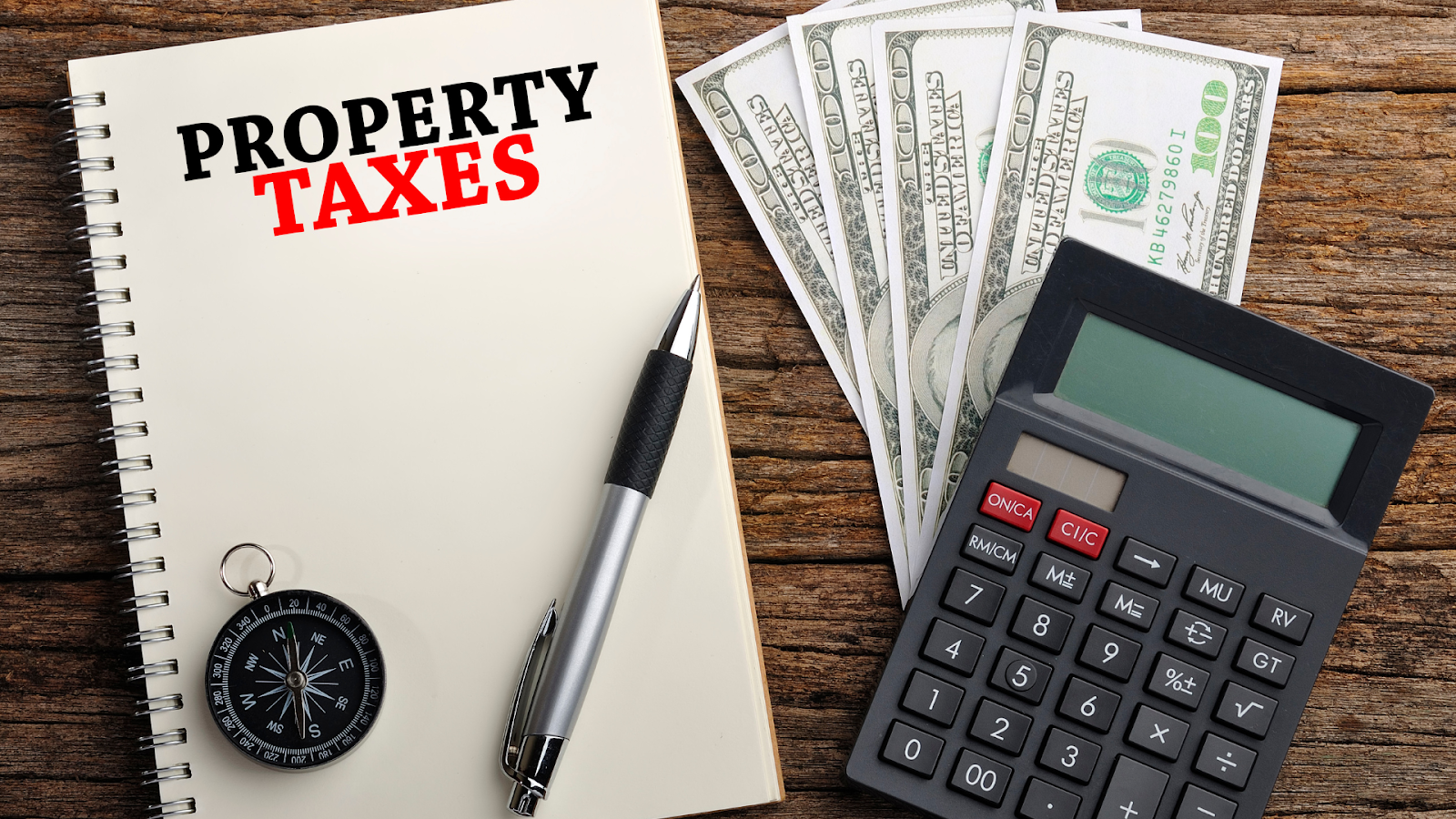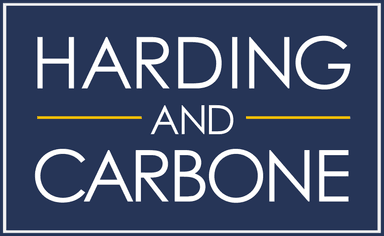Texas Property Tax Rates Demystified For Homeowners
October 4, 2025

Key Takeaways:
- Market Value Basis: Texas property tax rates are applied to a property’s assessed value, which reflects market conditions and local adjustments.
- Local Control: Rates vary widely because counties, cities, school districts, and special districts each set their own.
- Financial Impact: Higher tax rates directly affect both annual property tax bills and monthly mortgage payments through escrow.
Property taxes are a central part of homeownership in Texas, and the rates can sometimes feel confusing. With no state income tax to offset revenue, local governments rely on property taxes to fund schools, roads, emergency services, and community infrastructure. For homeowners, understanding how these rates are set and why they vary from county to county can provide clarity when that annual tax bill arrives. Knowing the basics can also help you anticipate changes and better manage your household budget.
At Harding & Carbone, we have been helping Texans navigate property taxes for more than fifty years. Our team brings unmatched experience and proven strategies to guide homeowners and businesses through the complexities of tax assessments and rate structures. We are proud to be one of the oldest and most respected property tax firms in the state, with a track record of serving thousands of clients across Texas.
How County Appraisal Districts Determine Market Value
Property taxes in Texas start with one key figure: your property’s market value. This number is meant to represent what your home or commercial building could reasonably sell for in today’s market. To calculate it, county appraisal districts rely on a combination of data sources and comparison methods rather than individual on-site inspections:
The Role Of Mass Appraisal
Instead of visiting each property in person, appraisal districts use a method called mass appraisal. This approach gathers information from public records, neighborhood trends, and property characteristics to assign values efficiently across thousands of properties at once.
Comparable Sales As A Benchmark
Comparable sales, also known as comps, are central to establishing value. Appraisers analyze recently sold properties in the same area and then adjust the values to reflect differences such as upgrades, age, or lot size. For example, a renovated kitchen or new roof can increase the assessed figure, while an older home with deferred maintenance may be adjusted downward.
Why Adjustments Matter
No two properties are exactly alike, which makes adjustments essential. Features like square footage, additional bathrooms, or energy-efficient improvements are factored into the calculations. These mathematical adjustments help bring properties into a fair comparison with one another.
Why This Process Impacts Your Taxes
Because the market value determined by the district directly shapes your property tax bill, accuracy is vital. Understanding how these numbers are created allows you to better identify potential errors and protect your investment. Harding & Carbone has decades of experience guiding homeowners through this process, and our services are designed to help you interpret valuations with confidence and clarity.
Key Factors That Shape Your Property’s Assessed Value
Understanding what shapes your property’s assessed value is essential for knowing why your tax bill looks the way it does. Appraisal districts use more than just recent sales when calculating value, and each factor can affect your home in a different way. Below are the key elements that influence assessments in Texas:
Market Value As The Foundation
The assessed value of your property begins with its market value. Appraisers study recent sales of comparable homes and then apply adjustments to account for differences such as square footage, lot size, or added features. This adjusted comparison forms the baseline for your tax calculation.
Condition And Age Of The Property
A home’s condition and age play a significant role in how it is valued. Newer or well-maintained properties are usually assessed at higher amounts, while homes with visible wear, outdated systems, or structural issues may receive lower values. Harding & Carbone helps homeowners review these details and better understand how their property’s profile influences taxes by offering dedicated services tailored to local assessments.
Location And Surroundings
Where your home is located often matters as much as its size and features. Properties in sought-after neighborhoods, near reputable schools, or close to amenities usually receive higher assessments. Homes located near busy roads, industrial zones, or less desirable areas may be assigned lower values.

Improvements And Upgrades
Changes to a property can quickly shift its assessment. Additions like a garage, deck, or renovated kitchen are seen as value increases, while removing damaged structures or reporting property damage can reduce the assessed figure. These updates are closely tracked by appraisal districts to keep valuations current.
Homestead Exemptions And Their Impact On Assessments
For Texas homeowners, the homestead exemption is one of the most effective ways to reduce property taxes. By lowering the taxable portion of your property’s value, it creates immediate savings and provides long-term protection against rapid increases. Understanding how exemptions work and why they matter can make a real difference in your annual tax bill:
Core Benefit Of A Homestead Exemption
The main advantage of the homestead exemption is that it subtracts a set amount from your home’s appraised value before taxes are calculated. For example, if your home is valued at $300,000 and you qualify for a $40,000 exemption, the taxable amount is reduced to $260,000 for school district purposes. This reduction directly impacts how much you owe.
Different Types Of Exemptions
Texas offers more than just the general residence exemption. Additional categories include exemptions for homeowners over 65, individuals with disabilities, and disabled veterans. To better understand which category applies to you, Harding & Carbone provides clear guidance through their services so homeowners can maximize savings.

How Exemptions Protect During Reassessments
One of the strengths of a homestead exemption is that it remains in place even when property values rise. This means your taxable value stays below the appraised value, allowing you to absorb market changes more gradually. Exemptions can act as a financial cushion, limiting the impact of sudden increases in neighborhood property prices.
Deadlines And Documentation Matter
Counties require proof of residence to grant exemptions, and deadlines are strict. Missing a deadline may delay savings for an entire year, which makes proper documentation critical. Staying on top of these requirements helps homeowners avoid unnecessary delays in receiving tax relief.
Common Assessment Errors Texas Homeowners Should Watch For
Even though property tax assessments rely on detailed records and formulas, mistakes can still occur. These errors often go unnoticed, but they can make a big difference in how much you pay each year. By understanding where inaccuracies usually appear, homeowners can take steps to correct them before costs pile up:
Incorrect Property Details
One of the most common issues is outdated or inaccurate property data. Extra rooms, incorrect square footage, or even features that do not exist can appear in the records and artificially inflate your property’s value.
Sales That Do Not Match Your Property
Appraisers rely heavily on comparable sales, but sometimes the chosen properties are not truly similar to yours. Homes with luxury upgrades, distressed sales, or properties from different neighborhoods may be used in error. Reviewing these comps closely helps you spot problems that can be challenged.
Overlooked Exemptions
Exemptions that are missing or incorrectly applied can significantly increase your tax bill. If your homestead, over-65, or disabled veteran exemption is not listed, you could be paying more than necessary. Harding & Carbone helps identify these missing items and provides support through their contact page so you can correct them quickly.
Outdated Condition Information
Property damage or needed repairs do not always appear in automated assessments. Issues like storm damage, foundation problems, or roof repairs can lower your property’s value but may not be reflected in the records. Documenting and presenting this information is important during a protest.
Clerical And Mathematical Mistakes
Even small calculation errors can have a meaningful impact. A misplaced decimal or incorrect square footage rate can raise your tax bill unnecessarily. Checking the math and requesting corrections can prevent overpayment.

Final Thoughts
Property tax assessments can feel complicated, but breaking them down into the key elements makes them easier to understand. Market value, property condition, location, and exemptions all play a role in determining what you pay each year. By becoming familiar with how appraisal districts calculate values and where errors can occur, you are better positioned to protect your investment and avoid unnecessary costs.
At Harding & Carbone, we focus on helping Texas homeowners and businesses make sense of their assessments with knowledge and clarity. From reviewing records to addressing errors, our team is here to support every step of the process. If you are ready to take control of your property taxes or want to learn more about professional guidance, visit our main site or connect directly through our contact page for personalized support.
Read Also:
- Everything You Should Know About Galveston County Property Taxes
- How To Manage Property Taxes In Harris County
- Fort Bend County Taxes: Essential Facts And Payment Steps
Frequently Asked Questions About Texas Property Tax Rates
What is the average property tax rate in Texas?
The statewide average property tax rate in Texas is about 1.68 percent, but it varies widely by county and school district.
Why are property tax rates in Texas considered high?
Texas has no state income tax, so local governments rely heavily on property taxes to fund schools, infrastructure, and community services.
Do property tax rates in Texas change every year?
Yes, property tax rates can shift annually as local taxing entities approve budgets and set new rates to meet funding needs.
How do school districts influence property tax rates?
School districts typically account for the largest portion of property tax bills, with rates based on voter-approved measures and local budget demands.
Are commercial properties taxed at the same rate as homes in Texas?
Yes, both residential and commercial properties are subject to the same tax rates, but the assessed value of commercial properties often differs due to their use and size.
Can property tax rates vary within the same city in Texas?
They can. A home within city limits may be subject to city, county, and school district taxes, while a nearby property outside the city might pay only county and school district taxes.
What role do local governments play in setting Texas property tax rates?
Cities, counties, school districts, and special districts each set their own rates based on annual budgets, and all of them combine to form your final bill.
Is there a maximum property tax rate allowed in Texas?
State law places limits on certain taxing authorities, but multiple overlapping entities can still raise the combined rate significantly.
How do property tax rates affect mortgage payments in Texas?
Since most lenders collect property taxes through escrow, a rate increase can raise monthly mortgage payments even if the loan terms remain the same.
Can Texas homeowners influence property tax rates directly?
Yes, taxpayers can attend public hearings, vote on local measures, and provide input when taxing entities propose rate changes.
